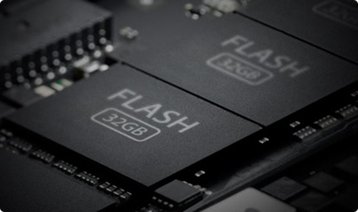Some of the dearly held beliefs about flash memory storage in the data center have been blown away by a report based on Google’s six years of in-the-field experience. Some parameters are at best unreliable, at worst useless, the paper concludes.
A major finding is that multilevel cell (MLC) flash drives, which target consumer market applications, are just as reliable as the more expensive single cell (SLC) enterprise versions. The standard metric to evaluate flash reliability is the raw bit error rate (RBER) of a drive. This is defined as the number of corrupted bits per number of total bits read. The difference in RBER for MLC drives are orders of magnitudes higher than for SLC models – and therefore there is a price difference.
Where the authors beg to differ from the manufacturers is the importance of RBER as a metric. In the datacenter, the RBER does not seem to correlate with the number of uncorrectable errors (UEs) reported which the writers maintain is the leveler between the two flash types.
Deceptive statistics
Similarly, and more damningly, uncorrectable bit error rate (UBER) figures are virtually dismissed as having little meaning. The report comments: “We see no correlation between UEs and number of reads, so normalizing uncorrectable errors by the number of bits read will artificially inflate the reported error rate for drives with low read count.”
Hard drives are also compared with flash drives. Flash appears to have a significantly higher rate of problems that can impact the user, such as uncorrectable errors, than experienced with traditional drives. On the upside, flash has a lower field replacement rate. However, usage does not impact reliability of solid-state drives, where the age of the drive seems to be more critical.
The in-depth report Flash Reliability in Production: The Expected and the Unexpected was released during last week’s Usenix Fast ’16 conference in California and is now available online. The Google experience was interpreted by Bianca Schroeder, an assistant professor in the computer science department of the University of Toronto, with Raghav Lagisetty and Arif Merchant of Google.

